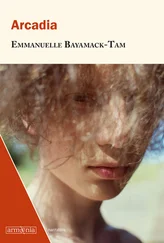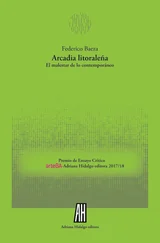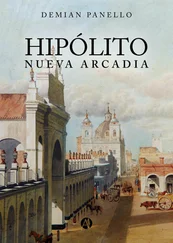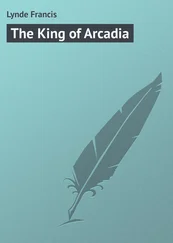Though Abe frets at first, Astrid commands the afternoon off. They will play, she says, and dares anyone to protest. They do not. The afternoon is bright and warm. The men go onto the tender green lawn between the porch and outbuildings, carrying the lacrosse sticks that Billy-goat, a real Onondaga Indian, had made one winter out of ash sticks and reclaimed raincoats. The women braid the hair of the men into plaits like their own, and then the men strip down all the way to their cotton shorts, torsos glowing winter-pale. Bit sits with the laughing women, who smoke wackystuff and chat among themselves and drink iced tea from pitchers, who pass around babies and blow tubas on the bellies of the wee ones. The other kids are playing somewhere, but he sits on Hannah’s thin lap, he watches the heaving mass of men chasing down the little ball, colliding and breaking apart, singing and arguing, falling to the ground, sweating. He watches his father drop a ball out of the basket of his stick and blush all down his neck and chest, how Titus’s fat-tire flops at his waistband, how Hiero is so nimble he doesn’t even seem to run, just appears where he needs to be. And Bit realizes as Tarzan shoots an easy goal and his team leaps and shouts and pats and squeezes that none of these big adult men, despite their smells and strength, are much more than boys, not so different from Bit himself. The world contracts in a friendly way around him.
Time comes to him one morning, stealing in. One moment he is looking at the lion puppet on his hand that he’s flapping about to amuse Eden’s russet potato of a baby, and the next he understands something he never knew to question. He sees it clearly, now, how time is flexible, a rubber band. It can stretch long and be clumped tight, can be knotted and folded over itself, and all the while it is endless, a loop. There will be night and then morning, and then night again. The year will end, another one will begin, will end. An old man dies, a baby is born.
Summer Hannah will take over from Winter Hannah with a slowly crisping voice and a new pair of dungarees. Not completely yet. But soon.
Sweetie passes, and puts her cold hands under his chin. What’s the matter, baby? she says, wiping his cheeks. Are you hurt?
His secret swells in him, almost bursts; it is good, it is wonderful. But he must be silent, he remembers almost too late, and shakes his head. She carefully dries his cheeks with a clean bit of her sleeve and gives him a cookie she tells him to keep secret from Astrid, whom she calls the Sugar Nazi. Then she kisses him. He would like to stay like this, Sweetie’s soft lips on his skin, but with a long breath he reluctantly lets time flow again.
The dawn of the day that Handy is to return from the concerts, the clouds break their bellies overhead and a surprise snow sweeps down in layers upon them. The forest hushes under the unexpected weight, the green buds startled inward, the birds huddled together in suffering. Late in the night Abe had fallen into bed in his work clothes, supervising the last of the woodwork, the last of the painting, the last varnish and sconces and what curtains they have, thrift-store finds, bedsheets sewn into curtains, curtains made from old Indian bedspreads still smelling of sandalwood. Loosely braided rag rugs, even stenciled oilcloths pretending to be rugs, are scattered everywhere. The house is ragtag, Bit overheard Midge complain; but it is complete, paint and plaster, woodwork and glass. Bit, who has never lived in a house, thinks it’s breathtaking, the most amazing thing he’s seen: the space alone threatens to drown him. Abe’s sweat on the pallet last night, though, stank of anxious incompletion. He tossed, fretted: he sleep-talked of broken window weights, unmatched molding, unpainted doors.
Against the sharp bones of his mother’s ribcage, Bit slept. When Hannah dreamed, the dream was so vivid it entered him; he saw a giant in a charcoal suit, as big as Arcadia House, half the size of the sky. He felt his hand, Hannah’s hand, extend to touch the swollen damp flesh. A nail nicked the giant’s skin, and air began to hiss out like a punctured tire. The man slowly deflated, flabby, shrinking. He was the size of the oak in the courtyard, then the Pink Piper, then the Showerhouse, then the Bread Truck. He was the size of Abe, then Hannah. The face was blank, like those of the Amish dolls Astrid once brought back in repayment for midwifing a baby. The suit the man wore became a pond. He shrank to the size of Bit, then smaller. He became a baby, then a nubbin of a baby, a fleshy balloon in a small red pool.
At last, the balloon popped. The man was gone.
Bit opened his eyes to find Hannah looking at him.
My dad’s dead, she whispered.
Bit put his hand to the pulse of his mother’s throat, and she fell back into sleep.
The sun is shy on the white fields now. Before the coffee is finished, the spring warmth melts the snow on the new Arcadia House roof until it is fragile as lace.
From the window, Bit watches Titus Thrasher come over the Quad with a sad face. A telegram flutters in his hand.
Hannah is red and puffy. But the invisible straps that kept her arms at her sides have dissolved, and her hands now seem to float. Even her breath seems less labored. Her eyes are enormous in her face.
I’m okay, she insists to Abe when he clutches her to him. I’m really okay. He kisses her on the temple, but his face is pale, disbelieving.
They stand again at the Gatehouse, eager for Handy, under sun so hot the snow has vanished. A dozen Newbies wait on the porch, a shoal of Germans unpacked from a hearse painted with passionflowers; two pregnant girls hugging themselves; a matted-haired Trippie muttering angrily to his shoelaces. The Newbie tent is full. Handy will know what to do with all these people.
It seems to circle, this wash of relief, above and through the crowd: Handy is returning, Handy will know what to do.
The day is splendid, and as they wait, the men toss a Frisbee on the long road. The women stand in loose clumps, touching one another on the shoulder, on the waist. Eden’s baby is the newest and is passed around. They gaze into her walnut face, each in turn sent on the cosmic energy trip of meeting a new soul. Kitty is so keyed up she takes off her teeshirt, and a man somewhere says in a thick voice, Far out, and Kitty shakes her stuff with a little grin, and it strikes Bit with a sudden force that she is beautiful. With her brown bob and pointed chin, she is a chestnut come alive.
It seems like forever ago that Handy and the Free People Band left, three months. Bit was a very tiny boy then. He can see himself that day, half a head shorter, his brain a blank, nothing at all to fill it but snippets of images. He sees his mother alone in the winter mud, her stare down the road.
Now the sound of a motor, and someone’s trumpet blares, and in the far distance around the bend, there it is, the Blue Bus, with Lila in a crocheted bikini and handkerchief posing like a pinup girl on the hood. On the driver’s side, Handy leans out the window, pulsing the horn, a shout braying out of his Confucius beard. Other heads hang out all the windows now. The engine dies and the bus coasts in and people pour off in a fug of smoke, and everyone embraces and Handy shouts. The Circenses Singers are in a goldfinch-colored bus that rumbles to a stop behind the Blue Bus. They pour out. They take out their now-dirtied Adam and Eve puppets, and then two new puppets they’ve made, an ancient man with muttonchops and a gaunt woman with a psychedelic dress. Four new puppeteers have joined; they sing and ring bells, and their song now is even stranger, trembling and breaking in air, making even the spring-fevered birds hush to listen. They finish their tune, and a roar goes up.
Читать дальше
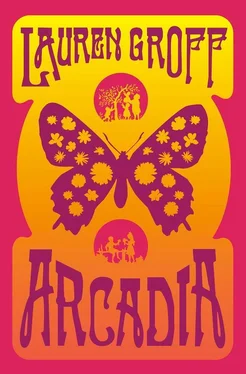
![Andrea Höst - In Arcadia [Touchstone - Extras]](/books/56405/andrea-host-in-arcadia-touchstone-extras-thumb.webp)





